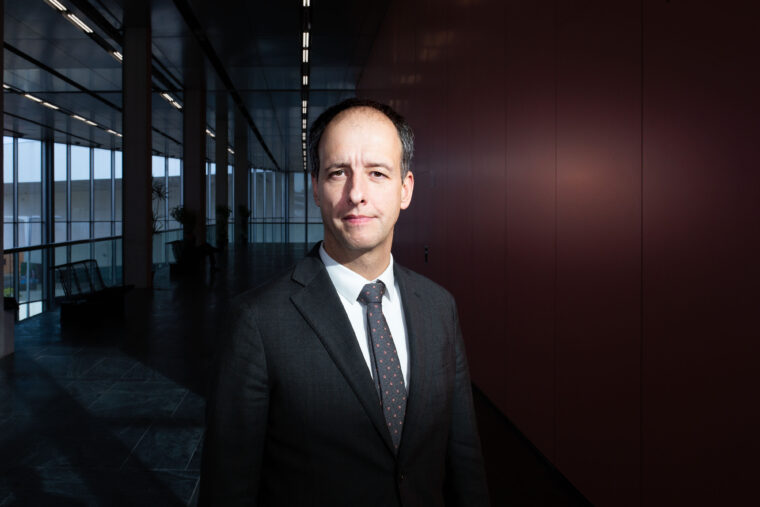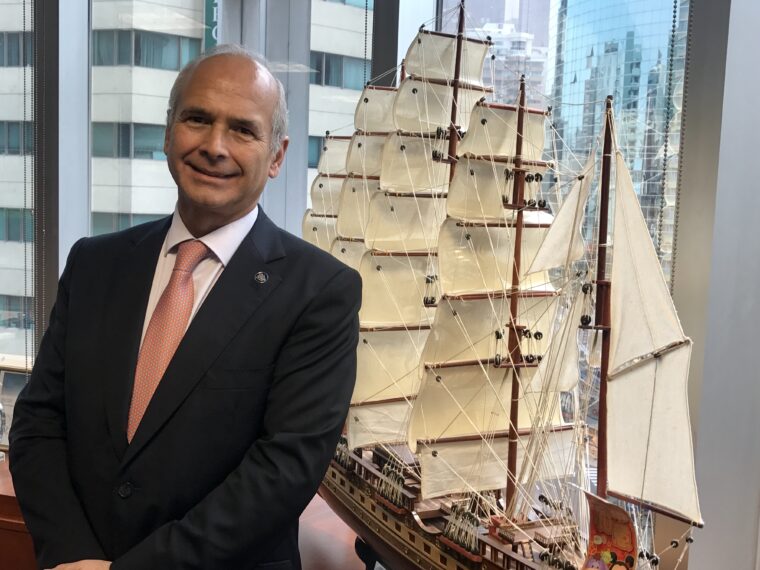Portuguese people who stand out abroad are helping to find out where business opportunities are and what kind of companies and activities the country can attract. An initiative that brings together Negócios and the Portuguese Diaspora Council.
1- What led you to leave Portugal?
I have always been curious to learn about other cultures, people, and markets. I believe it’s in our DNA as Portuguese, this genome that makes us go out and explore new worlds. When I finished the management course at Católica, in Lisbon, I joined Kearney, a global business consultancy that allowed me, from a very early age, to carry out projects abroad, mainly in Spain. After my MBA in the USA, in Philadelphia, at Wharton, with a stint in France, at Insead, an internship in London and a temporary return to Portugal, the desire to grow professionally and broaden horizons meant that I lived and worked abroad for almost 20 years, passing through Spain, UK, USA, Denmark, Brazil, Central Europe and now, Mexico.
The fact of working in global companies, and for the last 10 years at Roche, has given me the privilege of being able to develop an international career.
I love my country and I try to reinforce the roots of my children, who were born abroad, with their Portuguese soul. Portugality is not restricted to geographic territory, but rather to a set of values that we share. Therefore, I want to be able to contribute, with the Diaspora, to reinforce this Portugality that unites us.
2- What advantages or disadvantages does being Portuguese bring you?
Probably both. I like to think that none of them were decisive in my career. Most of the time, we ourselves are the ones who put labels on ourselves.
Being Portuguese can help with integration in Latin countries due to greater linguistic and cultural proximity. Being able to speak and understand a language is important for professional and personal integration in any country and culture.
However, in my experience of working in Nordic countries such as Denmark, the UK, or Central Europe, I have felt that much more important than nationality, it is meritocracy and the willingness to understand and adapt to the local culture that make the difference. And in terms of adaptability and cultural flexibility, as Portuguese, we have good references.
3- What obstacles did you have to overcome and how did you do it?
I don’t think I had to overcome any special obstacles because I was Portuguese. Depending on the country of destination, origin may have different connotations, such as being Portuguese in Brazil or Mexico, in which in the first case it may be associated with historical emigration waves or in the second more associated with being ¨European¨. Generalizations are always reductive, and this applies to all nationalities.
I try not to label anyone, including myself, based on their nationality. I have always tried to understand the cultures I have worked in and with whom I have worked or worked. Superiority or inferiority complexes are costly, and humility is fundamental.
Companies, increasingly global, seek diversity in teams, as this significantly improves results.
4- What do you admire most about the country where you are?
There is a lot to choose from, as Mexico is an admirable country. It would highlight the culture, the people and resilience as a people.
Mexico’s multiculturalism and historical richness are impressive. The combination of pre-Hispanic, colonial and contemporary is unique. An unmissable country, with its natural beauty, “magic pueblos”, food and people that I recommend everyone get to know. The Mexican people are extremely welcoming and caring, and their capacity for work and resilience is extraordinary.
I cannot fail to highlight the importance of a country with 130 million inhabitants, 11th in population and 14th in economy in the world, growing, with a border with the USA that brings migratory challenges, but many more opportunities through nearshoring. The size is impressive, and the scale is important from a business and geopolitical point of view. A country of challenges, but with many more opportunities.
5- What do you most admire about the company or organization where you work?
Roche’s culture of focusing on the patient through innovation is extraordinary. This culture is experienced at all levels, from the CEO to junior employees, and in the various countries in which I have worked. I have the privilege of working in the healthcare company that invests the most in Research (R&D) worldwide and being able to contribute daily to bringing this innovation, quality, and excellence to those who need it and thus help change lives. In Mexico, as in many countries, there are huge lacks access to healthcare, and the fact that we can contribute to closing this gap is really motivating. Another dimension that I deeply admire is the priority given to people’s development; They are the ones who make the difference in organizations. I have the privilege of working with extraordinary colleagues.
6- What recommendations would you give to Portugal and its entrepreneurs and managers?
Think big and beyond borders. Execute with ambition and sustainability. Scale and specialization are increasingly important, and, except for a few niche sectors, internationalization is fundamental.
I have enormous respect for businesspeople and managers in Portugal. Although from a distance, I have observed the evolution of the Portuguese business fabric, which seems very positive to me, focusing more on differentiation through quality, design, innovation, and human capital. The low-wage model has long been exhausted. Ecosystems that foster entrepreneurship, venture capital, and start-up incubators are fundamental.
There are critical areas for development and investment, where we will have to move faster: effective and rapid justice, lower tax burden and subsidization and a long-term vision with regulatory predictability. Without wealth creation there is no social justice. Entrepreneurs and managers in Portugal are, in many cases, true heroes. We cannot wait for the State to solve our structural problems. As managers and entrepreneurs, we have to lead such a transformation.
7- In which sectors of the country where you live could Portuguese companies find customers?
Mexico is a country that, while having its challenges, offers enormous opportunities. Its economy is approximately 6x the size of the Portuguese one and grows sustainably, with macroeconomic stability. It has a tailwind, both due to its demographic bonus, the global geopolitical context that favors nearshoring, the border with the USA and natural resources, and the increase in the population’s income and thriving business sector. My perception is that Mexico, with some honorable exceptions, is a little-known market for Portuguese companies. I believe that there are opportunities across the various sectors of activity, and I invite Portuguese businesspeople to analyze the opportunities and risks in this market. The trade agreement between Mexico, the US and Canada is an additional factor to consider. In this, as in other competitive markets, quality and innovation are fundamental.
8- In which sectors in Portugal could companies from the country where you live want to invest?
Portugal could be interesting for Mexican companies, not only as a domestic market whose size is limited, but as a gateway to the EU and Africa. For historical reasons, there is already a strong business relationship between Mexico and Spain and, in this sense, Portugal can complement an existing presence in Spain and/or play its own strengths, namely the relationship with PALOP, or positioning itself as a destination relatively low risk, in a complex global geopolitical context, with qualified human capital, good digital infrastructure, in energy transition and offering access to wider markets in the EU and Africa. We need, however, to reduce our “costs” as a country – with a high tax burden, late justice, bureaucracy, regulatory unpredictability, and the enormous weight of the State in the economy – to become more attractive. The recipe is known, but we need more and better execution.
9- What is the competitive advantage of the country you live in that could be replicated in Portugal?
Several of Mexico’s competitive advantages, such as its size, still young demographic pyramid, geolocation, natural resources such as oil, are specific to and cannot be directly extrapolated to Portugal. However, there are lessons we can learn, such as a low tax burden that promotes investment, the importance of birth rates and a strong entrepreneurial spirit. The culture of effort and appreciation of work is also notable.
Both countries had and have strong emigration and, as such, an extensive diaspora receiving important remittances from emigrants. But the way they will take advantage of this diaspora from a political-economic knowledge and network point of view and the ability to attract talent back to the country, after international experience, could make a difference.
10- Are you thinking of returning to Portugal? why?
Yes. I love my country and I envision returning at some point, probably in a different professional context. I like to think that at a certain point in my life I will be able to apply what I learned in my country and help my children strengthen their connection to their origins and family.






